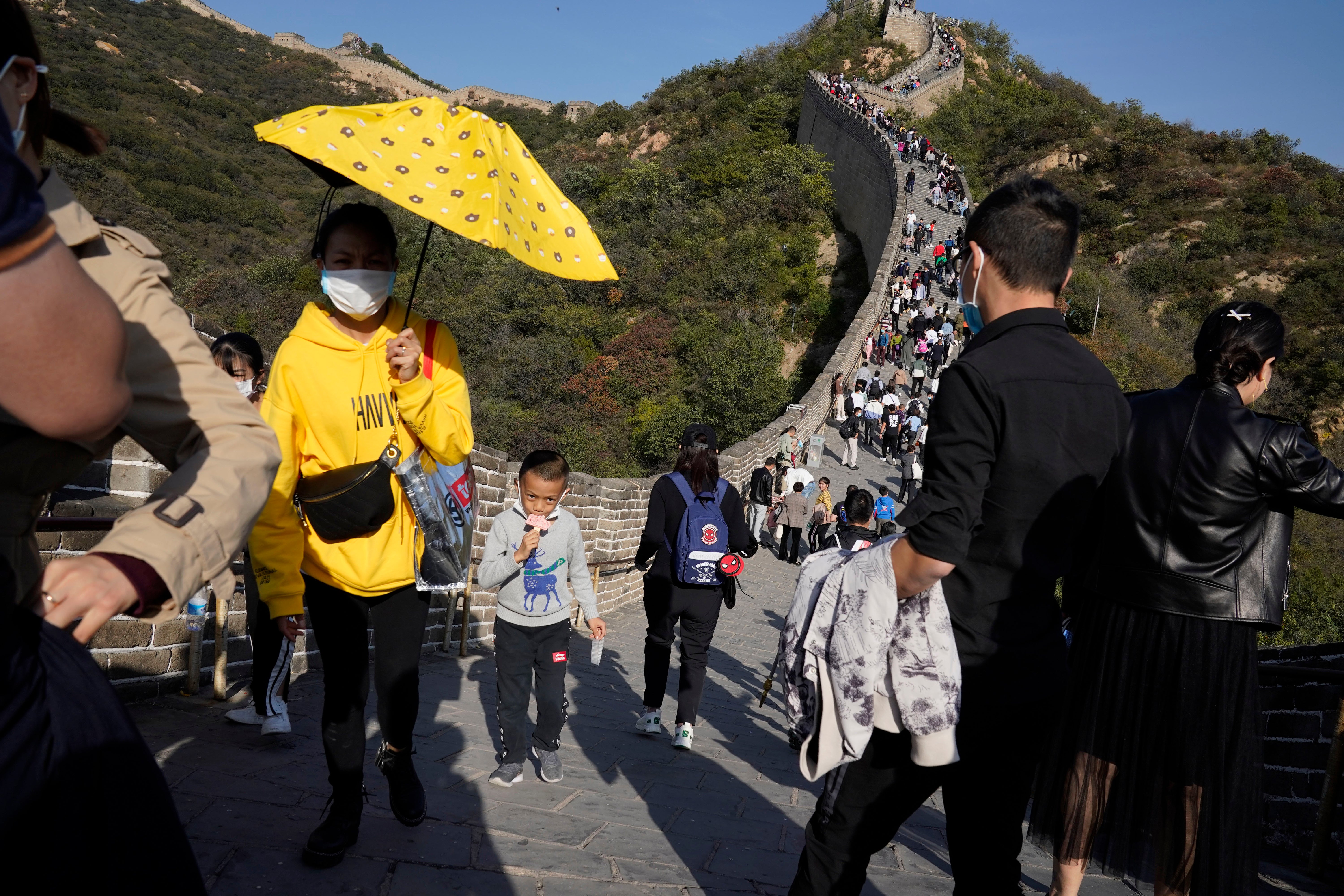China Golden Week holiday pumps up tourism, boon to economy
Some 637 million Chinese tourists took domestic trips during the eight-day Golden Week holiday, spending the equivalent of tens of billions of dollars at a time when China is seeking to boost consumer spending to stimulate the economy

Your support helps us to tell the story
From reproductive rights to climate change to Big Tech, The Independent is on the ground when the story is developing. Whether it's investigating the financials of Elon Musk's pro-Trump PAC or producing our latest documentary, 'The A Word', which shines a light on the American women fighting for reproductive rights, we know how important it is to parse out the facts from the messaging.
At such a critical moment in US history, we need reporters on the ground. Your donation allows us to keep sending journalists to speak to both sides of the story.
The Independent is trusted by Americans across the entire political spectrum. And unlike many other quality news outlets, we choose not to lock Americans out of our reporting and analysis with paywalls. We believe quality journalism should be available to everyone, paid for by those who can afford it.
Your support makes all the difference.Some 637 million Chinese tourists took domestic trips during the eight-day Golden Week holiday, spending the equivalent of tens of billions of dollars at a time when China is seeking to boost consumer spending to stimulate the economy
The holiday, which began Oct. 1, saw more than 45% of China’s population take trips within the country and spend 466.6 billion yuan ($69.5 billion), according to data from China’s Ministry of Culture and Tourism That marked a decline of 21% for domestic tourists from last year's Golden Week and a 30% decline for spending.
Still the numbers show consumption is beginning to bounce back following the battering it took earlier in the year from the coronavirus pandemic.
Travel within the country, and sometimes even within cities, was restricted beginning with the Lunar New Year in January as China fought the spread of the coronavirus that emerged in the central city of Wuhan. During the five-day Labor Day holiday in May, domestic tourism revenue was down nearly 60% from the previous year.
“Chinese consumer confidence has been significantly recovered due to the proper control of pandemic, government pro-consumption policies and stimulus and faster than expected resumption of business activities,” said Jennifer Ye, PwC’s China consumer markets leader.
The Golden Week tourism and spending figures indicated domestic consumption was recovering well, especially as consumers engaged in “revenge buying” to make up for the previous months when they were unable to travel, she said.
With many Chinese tourists unable to travel abroad due to global travel restrictions, those who previously traveled to Hong Kong and South Korea for duty-free shopping turned to the southern Chinese island of Hainan instead, spending 530 million yuan ($78 million) at duty free shops during the first five days of the holiday, according to a report by Chinese state broadcaster CCTV.
The Chinese province raised duty-free shopping limits on July 1, hoping to attract domestic tourists and compete with shopping hubs in Europe and other parts of Asia.
China has reported no locally transmitted coronavirus infections since Aug. 16, and restrictions have been eased.
To boost domestic tourism, local governments and online travel platforms like Ctrip and Fliggy are offering tourists discounts on attraction tickets, hotels and tour packages.
According to a Ctrip report, the number of bookings for flights, private tours and attraction tickets on its platform was up 100% compared to the same time last year.